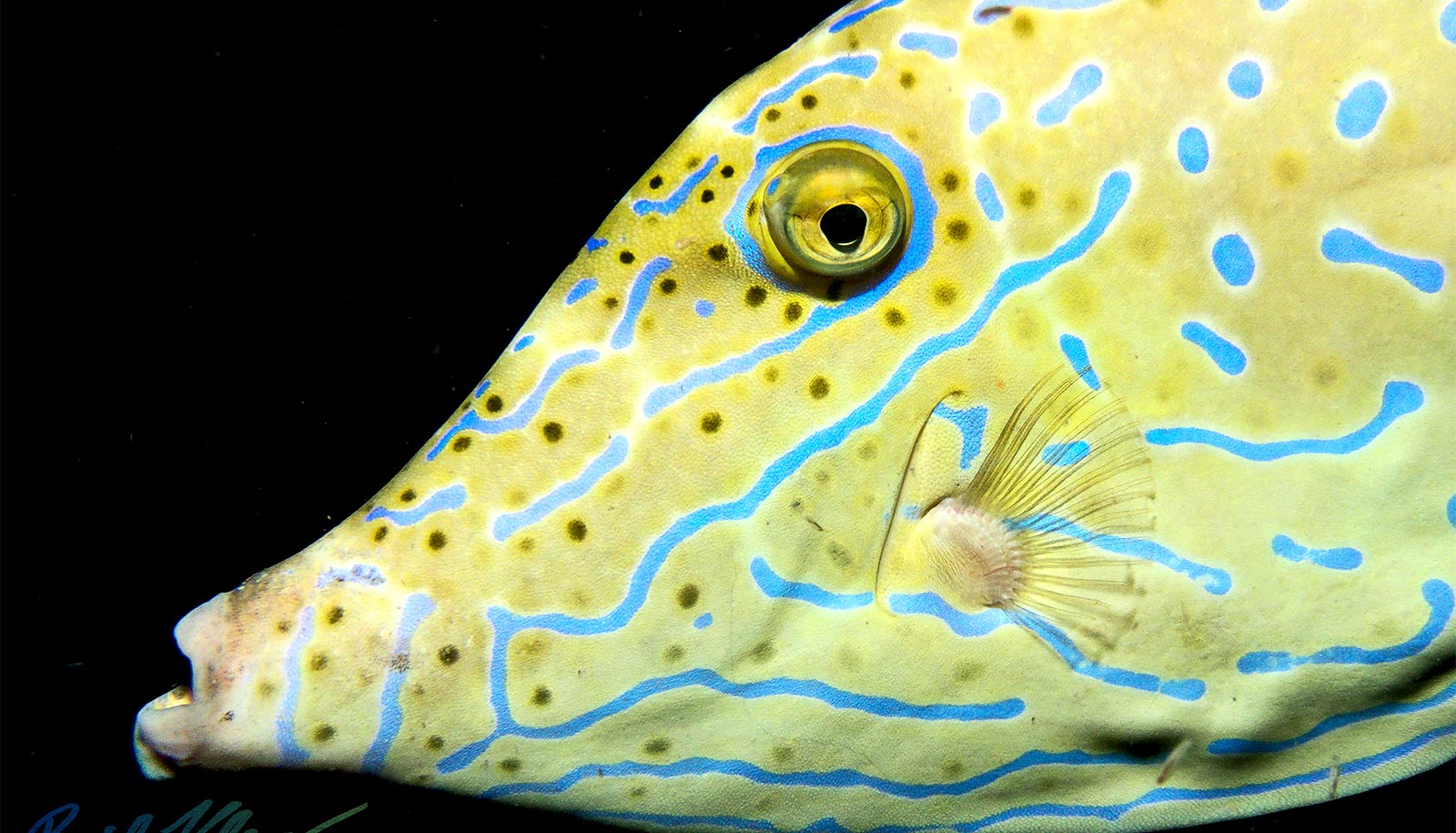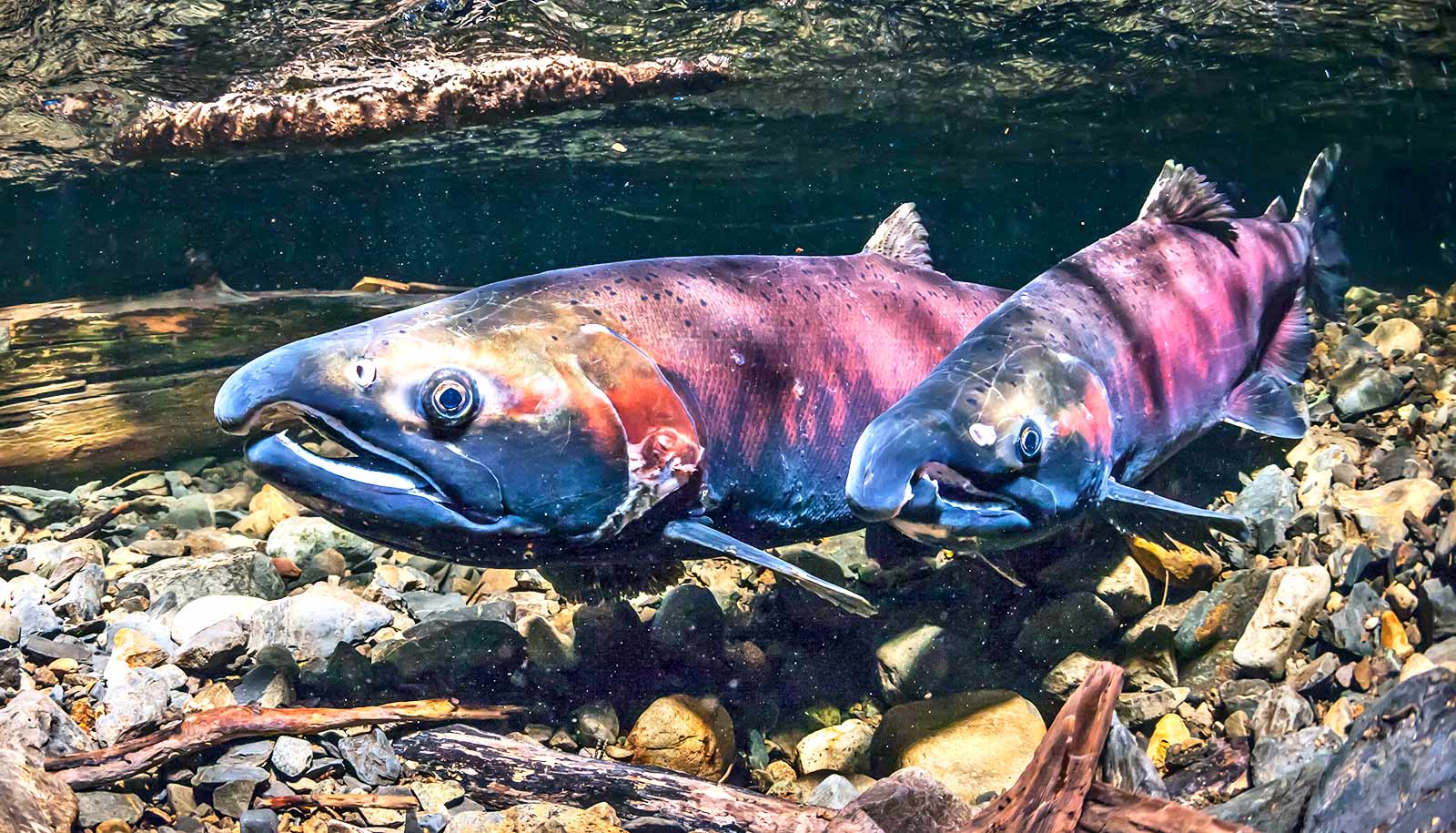
"Water temperature is already rising worldwide as a consequence of climate change and many fish species need to cope with this rapid temperature change, either by migrating toward colder regions or by adopting different life strategies such as shrinking in size over generations in order to avoid respiratory constraints," says Art Woods. (Credit: Klaus Stiefel/Flickr )
Warming oceans will be extra hard on big fish
Large fish will find it particularly difficult to extract oxygen from warming oceans, researchers report.
Warming ocean waters could reduce the ability of fish, especially large ones, to extract the oxygen they need from their environment, researchers report.
For their new study in the Proceedings of the National Academy of Sciences , the researchers developed a new model to determine how water temperature, oxygen availability, body size, and activity affect metabolic demand for oxygen in fish.
The researchers based their model on physicochemical principles that look at oxygen consumption and diffusion at the gill surface in relation to water temperature and body size. They compared predictions against actual measurements from over 200 fish species where oxygen consumption rates were measured at different water temperatures and across individuals of different body sizes.
“Our data suggest that, as temperature increases, the demand for oxygen of many fish species will exceed their capacity to extract oxygen from the environment through their gills,” says lead author Juan Rubalcaba, a postdoctoral fellow at McGill University.
“As a result, the aerobic capacity of fish decreases in warming waters, and this reduction may be more important in larger fishes. This tells us that global warming could limit the aerobic capacity of fish, impairing their physiological performance in the future.”
“Water temperature is already rising worldwide as a consequence of climate change and many fish species need to cope with this rapid temperature change, either by migrating toward colder regions or by adopting different life strategies such as shrinking in size over generations in order to avoid respiratory constraints,” says senior author Art Woods, a professor of biological sciences at the University of Montana.
“By including oxygen, this model stands apart by predicting observed patterns of variation in metabolic rate among fishes worldwide than current theories, which focus primarily on body size and temperature.”
Source: McGill University
The post Warming oceans will be extra hard on big fish appeared first on Futurity .
Share this article:
This article uses material from the Futurity article, and is licenced under a CC BY-SA 4.0 International License. Images, videos and audio are available under their respective licenses.
Related Articles:
To fight climate change, put algae on the menu
Oct. 6, 2020 • futurityMore CO2 messes up salmons’ life-or-death sense of smell
Dec. 26, 2018 • futurityLinks/images:
- https://doi.org/10.1073/pnas.2003292117
- https://www.futurity.org/southern-ocean-antarctic-ice-sheets-wind-2251232-2/
- https://www.futurity.org/ocean-breathability-oxygen-climate-change-2450052/
- https://www.mcgill.ca/newsroom/channels/news/oceans-warm-large-fish-struggle-327648
- https://www.futurity.org/fish-oceans-climate-change-global-warming-2501912/
- https://www.futurity.org


